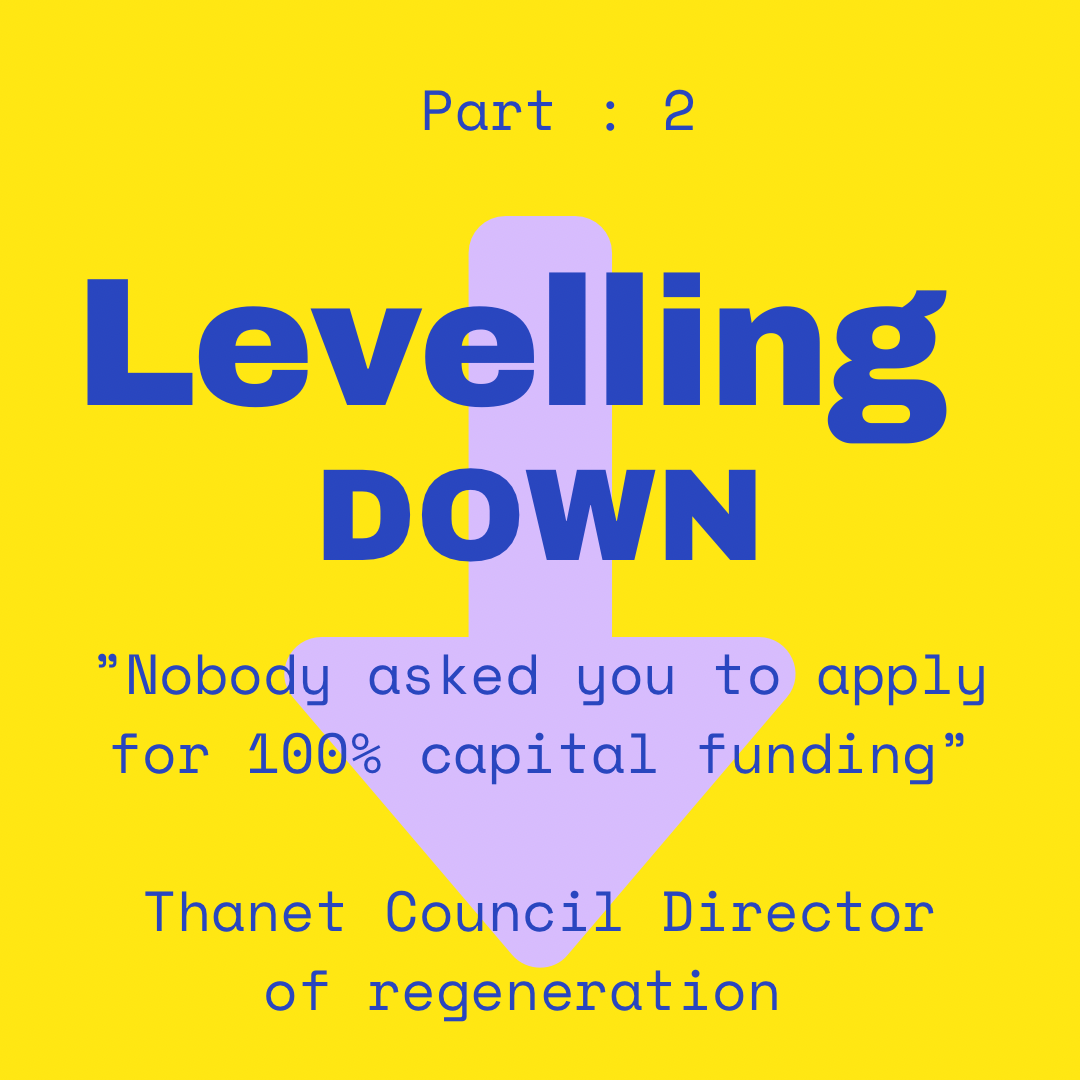Essential to every publicly funded grant is revenue funding, this money is provided to ensure an organisation can afford to deliver a project, as it helps to offset costs arising from administering the grant. Since the start of this year we have been told repeatedly by TDC’s Director of Regeneration that revenue funding for our project was not going to be available to us. We are hugely disadvantaged, as a small community organisation, with this descision. We are currently tapping into revenue funding raised by GRASS that could be used on other important projects, and we feel this is totally unacceptable for a project of this scale and type.
Despite the MTD project team repeatedly telling us there is no revenue funding available, we recently found online the following Government guidance:
“Revenue funding can be either for programme management costs or project specific revenue costs. This is set at up to 7% of the overall deal for project specific RDEL, and up to 5% for programme management costs. These requirements should be clearly set out in financial profiles submitted to MHCLG at project confirmation stage, by completing the Excel annex a 1: financial profile, previously circulated to towns.”
It should be noted that there was a Government mandated cap on revenue spend across the Coastal Wellbeing projects as a whole, we have since found out that TDC decided to take the revenue funding allocation that was meant for us, and use it to help deliver their own projects by creating a new ‘community engagement’ role for an additional TDC Officer. TDC also used the name of our organisation within the job description for this new role without seeking our input or approval.
It is clear from the above that revenue funding could, and should, have been allocated to us when the Coastal Wellbeing business case was submitted to Government. Recently, despite our clear stance and repeated discussions with councillors and senior officers, there has been no meaningful progress on this matter, and we were told by the Director of Regeneration “Nobody asked you to apply for a 100% capital funded project”. This decision is especially disheartening when you consider that GRASS has invested thousands of hours of work into the Coastal Wellbeing projects without any financial support from the Margate Town Deal to cover our administration costs. Consequently, we now find ourselves struggling to deliver important community events such as Cliftonville in Bloom, the Cliftonville Games, and the Margate Harvest Festival.
It is important to ask what support, if any, have other community organisations received for their Margate Town Deal projects in relation to revenue funding?
It appears that the government’s “levelling up” initiative is sadly resulting in “levelling down” for one of the most economically disadvantaged communities in the UK.


What can we do to help? Sign a petition? Request a public meeting with Thanet TDC?
Hi Gabrielle, the best thing you could do is to write to your councillors and express your concern – https://democracy.thanet.gov.uk/mgMemberIndex.aspx?bcr=1. Thank you for your support.